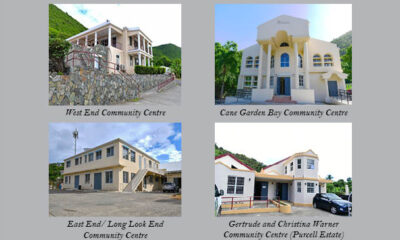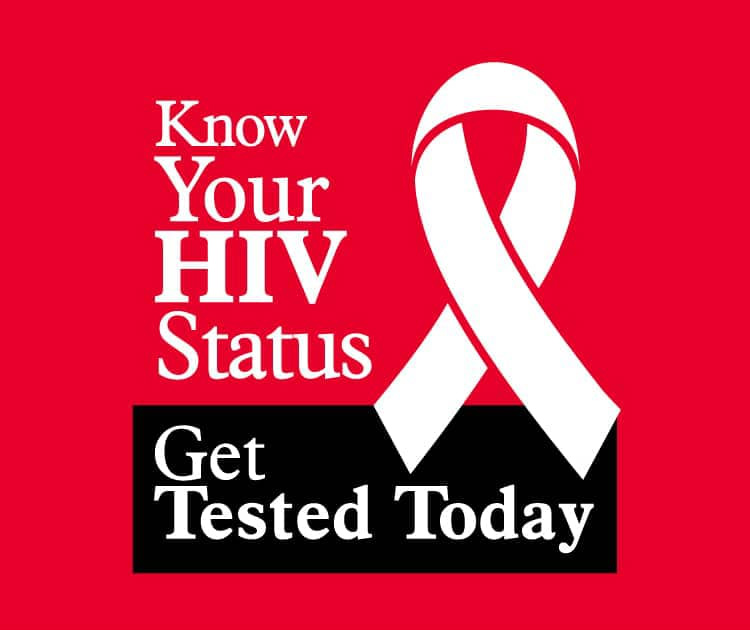International
Outrage in Brazil: 88 Citizens Deported in Shackles Amid U.S. Crackdown
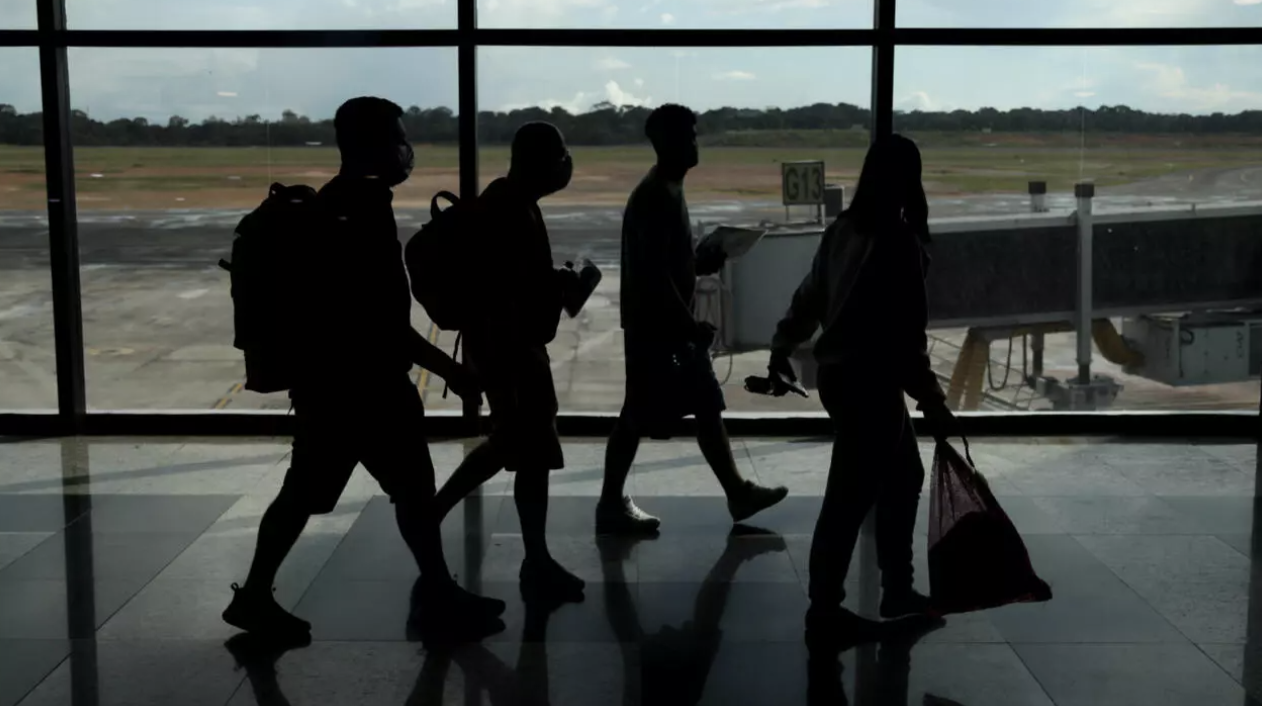
In the first week of his presidency, Donald Trump has enacted a series of aggressive immigration policies targeting Latin American migrants, leading to significant diplomatic tensions and widespread concern across the region.
One of the administration’s initial actions was the suspension of the CBP One application, a tool previously used by asylum seekers to schedule appointments at U.S. ports of entry. This move has left thousands of migrants in limbo, uncertain about their legal pathways into the United States.
Concurrently, the U.S. has initiated mass deportations, utilizing military aircraft to return migrants to their countries of origin. This approach has been met with resistance. Colombian President Gustavo Petro refused entry to two U.S. military flights carrying deported Colombians, citing concerns over the dignified treatment of migrants. In response, President Trump announced retaliatory measures, including a 25% tariff on Colombian imports and the suspension of visa services in Bogotá.
Mexico has also taken a stand, denying permission for a U.S. military plane carrying deported migrants to land. This decision reflects broader regional apprehension about the U.S.’s deportation tactics and their potential humanitarian implications.
In anticipation of increased deportations, Mexican border states are preparing shelters to accommodate returning migrants. Cities like Ciudad Juárez have erected structures to house deportees, while other border towns are undertaking similar initiatives to manage the expected influx. Brazil has condemned the deportation of 88 of its citizens from the U.S., citing reports of degrading treatment, including passengers being handcuffed during the flight. The deportees, initially bound for Belo Horizonte, were redirected to Manaus due to technical issues, where Brazilian officials intervened to remove the handcuffs. President Luiz Inácio Lula da Silva arranged for a Brazilian Air Force aircraft to complete their journey, emphasizing the need for humane treatment. Brazil’s Ministry of Foreign Affairs has demanded explanations from the U.S., marking escalating tensions amid the recent wave of deportations across Latin America.
The aggressive deportation push has strained U.S. relations with its Latin American neighbors. Many leaders argue that the policy disregards the complexities of migration, including economic hardships and violence driving people to leave their home countries.
Experts predict that this diplomatic fallout could have lasting effects on U.S.-Latin American relations, particularly as countries like Colombia and Brazil reassess their economic and political ties with Washington.
Business
Caribbean Shipping Secures Exemption from U.S. Port Fees on Chinese-Built Vessels
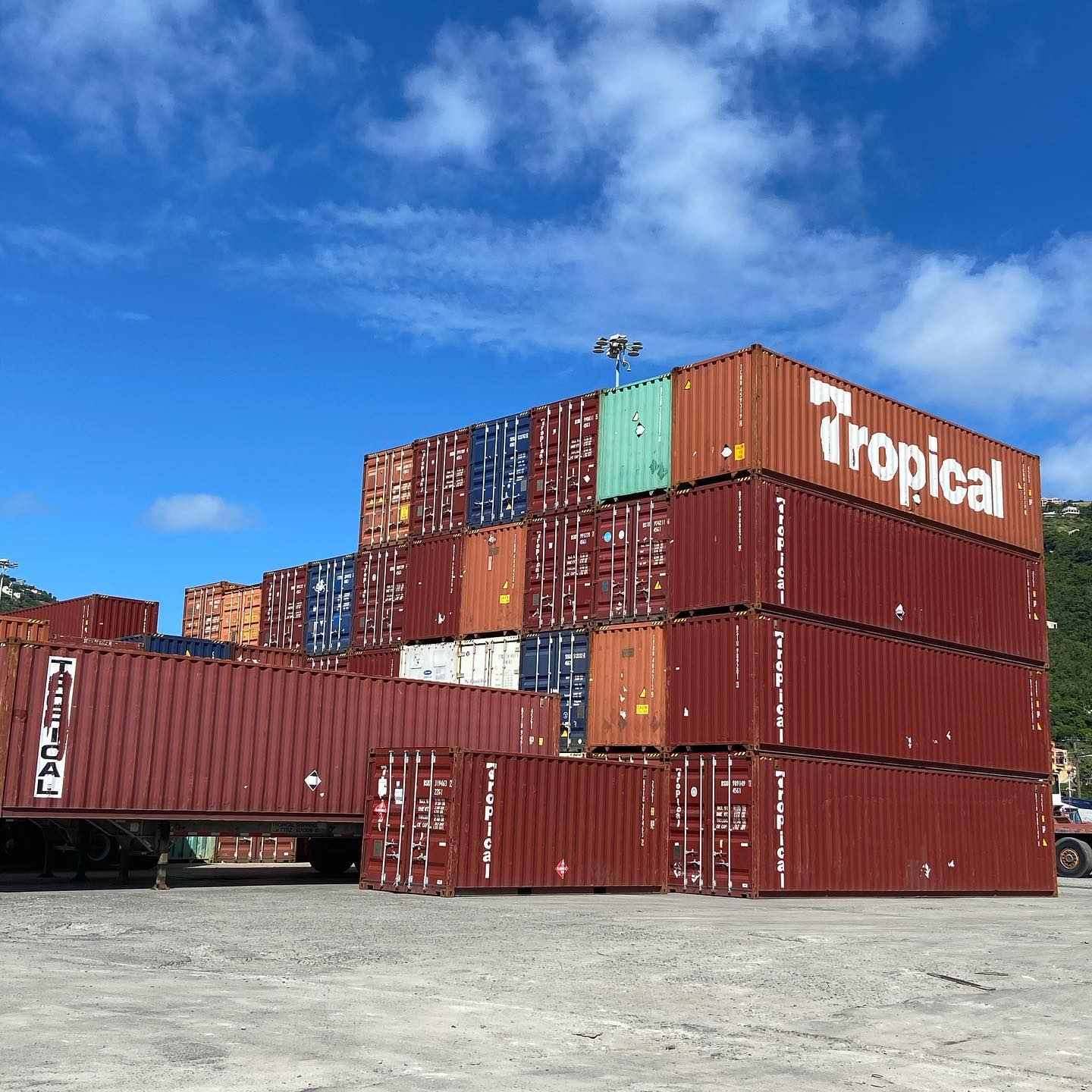
The Office of the United States Trade Representative (USTR) has exempted Caribbean shipping routes from newly proposed port fees on Chinese-built vessels. This decision follows concerted advocacy by the Caribbean Private Sector Organisation (CPSO) and regional stakeholders, who warned that the fees could have devastating economic consequences for the Caribbean.
The USTR’s initial proposal aimed to impose fees of up to $1.5 million per port call on vessels constructed in China, as part of a broader strategy to counter China’s dominance in global shipbuilding and bolster the U.S. maritime industry. However, the policy faced immediate backlash from Caribbean nations, where a significant portion of shipping relies on Chinese-built vessels.
Dr. Patrick Antoine, CEO and Technical Director of the CPSO, testified at a USTR public hearing, emphasizing that over 90% of CARICOM’s trade in goods depends on maritime transport. He warned that the proposed fees could lead to a 60% increase in shipping costs to and from the Caribbean, severely impacting economies where more than 50% of the ships are Chinese-built.
The potential repercussions were particularly alarming for smaller Caribbean states like Antigua and Barbuda, Dominica, Grenada, St. Lucia, and St. Vincent and the Grenadines, which rely heavily on short-sea shipping routes serviced by Chinese-built vessels. Prime Minister Gaston Browne of Antigua and Barbuda expressed concern that shipping a container could increase by $3,000 to $4,000, leading to an 8–10% rise in consumer prices and pushing inflation rates to potentially 12–14%.
In response to these concerns, the USTR revised its policy to exempt ships operating between U.S. domestic routes, the Caribbean, U.S. territories, and Great Lakes ports from the new fees. This adjustment aims to prevent inflation, supply chain disruptions, and surging trade costs in the region.
The exemption has been met with relief across the Caribbean. Dr. Antoine expressed gratitude to the USTR for recognizing the unique challenges faced by Caribbean economies and for taking steps to safeguard regional trade stability.
While the exemption provides immediate relief, regional leaders and industry stakeholders continue to monitor the situation closely. They advocate for long-term strategies to enhance the resilience of Caribbean supply chains and reduce dependency on external factors that could disrupt trade.
Business
BVI Braces for Ripple Effects as U.S. Stock Market Sheds $5 Trillion

In just three weeks, the U.S. stock market has lost a staggering $5 trillion in value, a downturn that could have significant implications for the British Virgin Islands (BVI), where the U.S. dollar is the official currency. As economic uncertainty grips the global financial system, concerns are mounting over how this sharp decline might impact the BVI’s economy, particularly in the areas of tourism, offshore financial services, and overall consumer confidence.
With the U.S. being the primary source of visitors to the BVI, any financial squeeze on American households could lead to a reduction in travel plans. A weaker U.S. stock market often means tighter budgets for vacationers, which could result in lower visitor numbers, reduced hotel bookings, and fewer yacht charters—critical sectors for the territory’s economy.
As one of the Caribbean’s leading offshore financial hubs, the BVI is deeply connected to global markets. A drop in stock values can shake investor confidence, potentially leading to slower financial transactions, reduced incorporations, and a cautious approach from high-net-worth individuals who use BVI-based structures for wealth management.
With the BVI using the U.S. dollar, economic shocks in the U.S. can quickly affect the cost of goods and services in the territory. A weaker U.S. market could lead to fluctuations in inflation, making imports more expensive. For a territory that relies heavily on imported goods—from food supplies to construction materials—this could put additional pressure on businesses and consumers.
The BVI government will likely keep a close watch on these developments, as a prolonged U.S. market downturn could impact tax revenues, business activity, and overall economic confidence. Policymakers may need to explore ways to strengthen economic resilience, whether through increased regional trade, diversification efforts, or measures to support local businesses in uncertain times.
While the full impact of this financial slide remains to be seen, one thing is certain: the BVI, like many other U.S. dollar-dependent economies, is paying close attention to Wall Street’s turbulence and preparing for potential economic headwinds.
International
White Bay Beach on Jost Van Dyke Featured on MSN.com
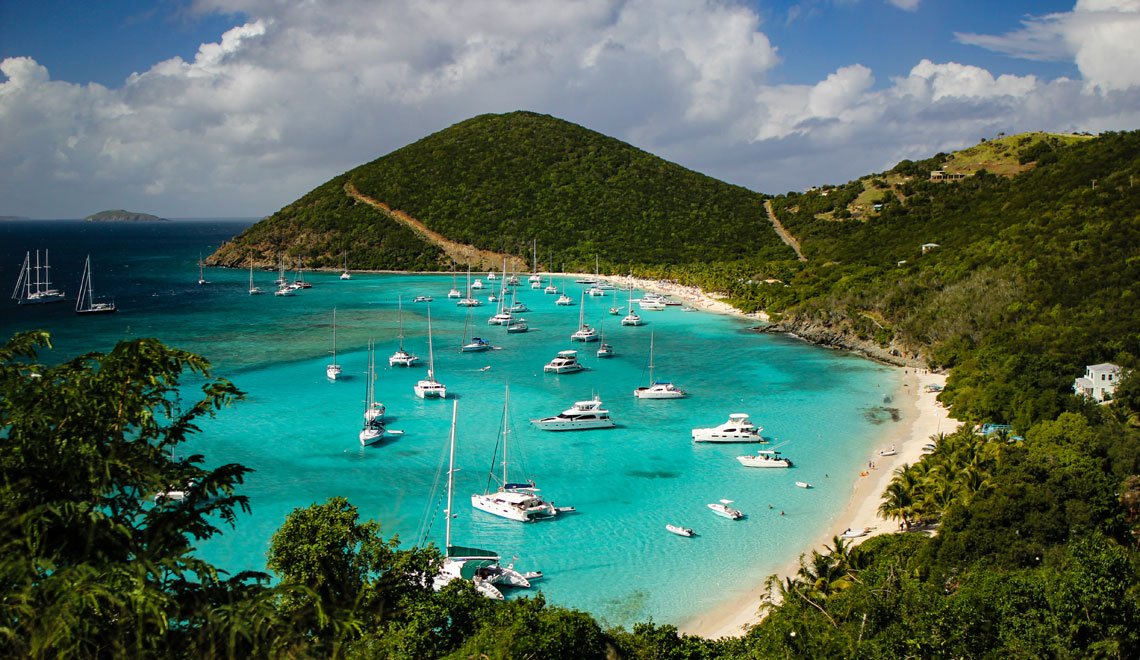
White Bay Beach, located on the small island of Jost Van Dyke in the British Virgin Islands, was recently featured in a travel article on MSN.com, highlighting its reputation as one of the Caribbean’s top destinations.
The article describes the beach’s white sands, clear turquoise waters, and the lively beach bars along its shore. Accessible mainly by boat, White Bay is a popular stop for yachters and day-trippers. Many visitors anchor offshore and swim to the beach to enjoy its attractions.
Among the well-known spots mentioned is the Soggy Dollar Bar, famous for creating the Painkiller cocktail, a mix of dark rum, coconut cream, and tropical juices topped with nutmeg. Other featured locations include Hendo’s Hideout, known for its Caribbean cuisine, and Coco Loco, praised for its fish tacos.
White Bay also offers activities such as snorkeling, paddleboarding, and kayaking. The coral reef just offshore is home to diverse marine life, making it a draw for water enthusiasts. Visitors looking for relaxation can also experience the Ocean Spa, which provides massages in a floating hut on the bay.
Accommodations near White Bay range from private villas to larger estates, many with ocean views. The Hideout, featuring seven villas with private plunge pools, and White Bay Villas, offering various lodging options with access to the White Bay Beach Club, were also highlighted.
The MSN.com feature showcases White Bay Beach’s combination of natural beauty and vibrant culture, reinforcing its status as a must-visit destination in the Virgin Islands.
-
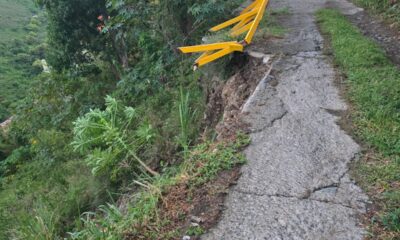
 Uncategorized1 week ago
Uncategorized1 week agoAnother Section of Threlfalls Collapses, Prompting Safety Concerns
-

 Crime/Police2 days ago
Crime/Police2 days agoTwo Masked Men Arrested Outside BVI Bank; Guns and Ammunition Seized, Police Say
-
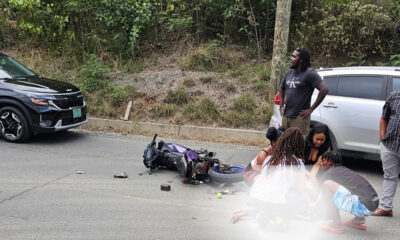
 Local News1 week ago
Local News1 week agoWoman Seriously Injured in Motorcycle Crash at Fish Bay
-
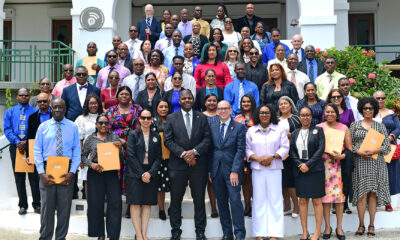
 Local News2 days ago
Local News2 days ago119 Individuals Granted British Overseas Territories Citizenship in the Virgin Islands
-

 Uncategorized2 days ago
Uncategorized2 days agoMajor Drug and Weapon Seizures Mark Strong Start to 2025 for BVI Police
-
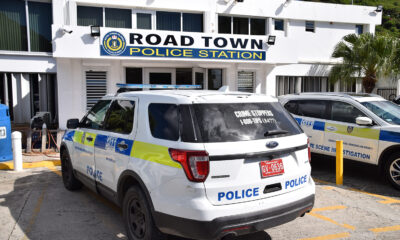
 Crime/Police1 week ago
Crime/Police1 week agoBVI Begins Vetting of Police Officers, Reopen Search for Commissioner
-

 Crime/Police2 weeks ago
Crime/Police2 weeks agoPolice to Enforce Noise Act Amid Complaints About Loud Scooters, Trucks
-

 Uncategorized1 week ago
Uncategorized1 week agoBVI Shuts Down Liquor Sales for Good Friday — Violators Face Fines, Police Warn


